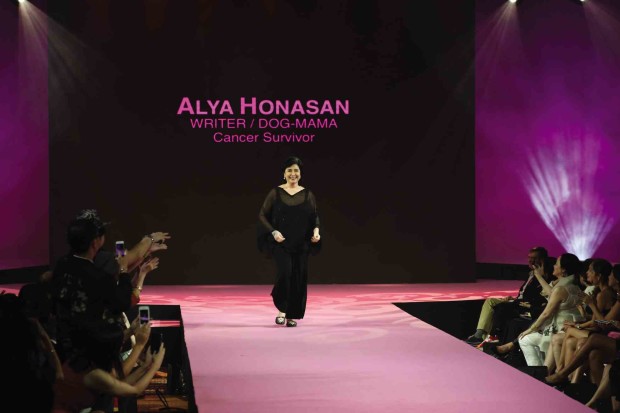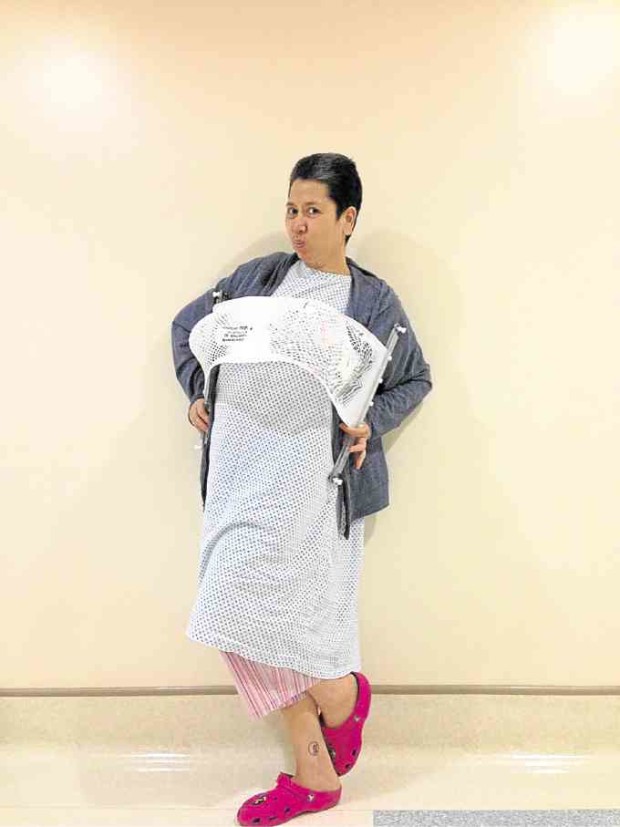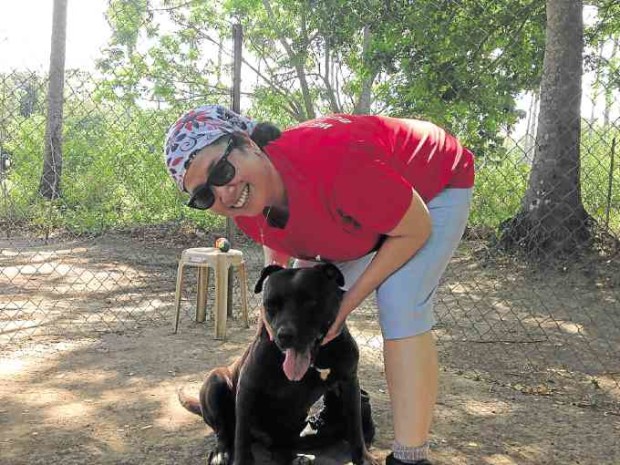Living (not just surviving) after breast cancer
As a breast cancer survivor (diagnosed June 7, 2013) who volunteers with ICanServe, a nonprofit breast cancer awareness organization, I am sometimes asked to share my experiences at various fora and gatherings held in October, Breast Cancer Month. During one of them, I told a roomful of bank employees, “It’s ironic that it took a brush with a life-threatening disease to make me feel more alive than I’ve ever been.”
Being called a “survivor” acknowledges the difficulty of the battle—and cancer is not a walk in the park, any time, for anybody. After some time, though, when the fear of the chemotherapy IV needle has faded from memory, when the profound exhaustion of radiation has worn off and when the scars from your surgery (in my case, a lumpectomy, where only the offending tumor and a chunk of surrounding tissue were removed) have become less visible, life returns to normal.
Except that, well, it’s a new normal. In my case, after three years, “normal” means getting quarterly tests to check if any unwelcome visitor has returned, particularly in my lungs, bones and liver, where cancer tends to spread. It also means experiencing a few days of what we call “scanxiety,” worrying about the outcome, and heaving a sigh of relief when tests come back declaring my body “unremarkable” (whaaaat?).
It’s about feeling a surge of empathy when you hear of another human being about to embark on the battle. It’s a battle that involves insanely expensive medical treatments that drain your finances and procedures that weaken you and your immune system—a battle that turns your priorities on their head. It’s about keeping your faith—and if you don’t have much of it, learning the hard way to acknowledge that there really is a power beyond you and your hollow self-importance and feelings of invincibility.
It’s also about stopping myself before I get too anxious or harassed—remembering, in my case, that it was most probably stress that got me there (because nobody knows for sure what causes cancer). It’s about trying to always make healthy choices, exercising regularly and eating better.
I say “trying” because that’s the best you can do. After my diagnosis, I swore I would never ingest another preservative or taste a grain of sugar, ever again. My friend and ICanServe goddess Kara Magsanoc-Alikpala told me knowingly, “OK. Do whatever works for you.”
I’m not knocking anyone who changed his or her lifestyle drastically after cancer, and I know many cases of people who went into remission by doing so. I avoid canned or excessively processed food now. I don’t work on weekends (I used to, a lot) and meditate to fight stress. I glug fresh vegetable juice, lost weight to stay healthier and regularly walk and practice yoga because exercise is the best way to prevent illness.
Then again, it must be said: Do I really want to live the rest of my life without an occasional slice of sugar-loaded, preservative-laden, very unhealthy, absolutely delicious birthday cake?
Not going to happen. Kara was right—one learns to balance one’s choices after cancer. It becomes a matter of quality, not quantity. Besides, I have neither the determination nor the time and resources to go hard-core organic, so I can’t lose sleep about it. It’s not an excuse; it’s a reality check.
I don’t get piss drunk anymore, but I will get tipsy with a couple of glasses of really good wine. I gave up meat long before I got sick, but I did recently eat my way through 15 (!!!) little plates at a kaiten (conveyor belt) sushi place in Osaka, which left me stuffed and catatonic—because I love sushi, and well, this was Japan, for crying out loud.
I still work hard, and can stay up until 2 a.m. writing a good story. I have, however, learned to say no, even to the detriment of my bank account, when I know the work will be (a) too much, (b) unmotivating and (c) done with incompetent or unpleasant people. Fortunately, I’ve built up enough of a network of associates in my, er, advancing years to not have to go out on a limb with new bosses, or make very difficult professional compromises.
Money, as I’ve learned, is not always the solution. In fact, it can sometimes be the problem. Working with colleagues I trust, meanwhile, makes life much easier.
Which brings me to the people in my life. After cancer, I’ve realized how short and important life is—and how it should not be wasted doing and saying things I don’t want to. A huge part of that is hanging around people I like, and not just tolerate. I tend to choose time with people I like over a deadline nowadays. I ease myself out of the lives of people I am not comfortable with. As long as I’m not rude about it, it eventually works out best for everyone.
And then there’s the stuff. In the long run, you realize, with blinding clarity, that you can’t take any of it with you. That new bag is small comfort when radiation has knocked the wind out of you.
While saving for my old age and other unforeseen medical emergencies, I’ve resolved to spend more on experiences—that wonderful show, that trek up a mountain, that dive trip to see stuff I’ve never seen. It’s about finding out what truly makes you happy and doing it more because you might not get the chance to do it again.
Also, it’s about praying more and better—not because I am afraid my cancer will come back (ironically, my brush with a potentially terminal illness has almost eradicated my fear of death), but because I’ve realized how much of life is really not in your hands. I read a really appropriate meme on Facebook once: “Relax. Nothing is under control.”
No, I don’t mean sitting back and saying, “Lord, bahala ka na (I leave it all up to you),” then turning around and being foolish or unkind. It’s taking more time to remember that, in the greater scheme of things, everything unessential really does fall away and it’s grace that sustains you.
So yes, I’ve probably lived with more meaning in the last three years of my life than I ever had. Every day by the sea is a peak experience; every moment in a yoga pose, a return to myself; every minute spent with loved ones, my friends and my dogs, a second chance to be appreciated.
I am still managing my clinical depression (yes, it’s also a disease, in case you haven’t received the memo) and coming to terms with my post-cancer, menopausal body (read: creaking bones, muscle pains, stuff I never thought would ever happen to me).
Where to get help
October 09, 2016
Page A3-3
There are places to go for financial assistance if you need it.
The Philippine Charity Sweepstakes Office (PCSO) is a good source of additional funding, but be patient with the paperwork and lining up. Check out requirements at www.pcso.gov.ph.
The Andres Soriano Foundation extends financial aid; call 8340874, 8319941 and 8340872.
The Cancer Institute of the Philippine General Hospital, Taft Avenue, Manila, also accepts charity cases; call 5218400 ext. 3928 or 4100, or 5266953.
The Philippine Foundation for Breast Cancer Inc. (PFBCI) is a breast cancer support organization and support group that has the Breast Care Center at East Avenue Medical Center in Quezon City. It has “Boobie Programs” offering everything from free breast screening, mammography and biopsies, to financial assistance, counseling, surveillance, home visits and events. For information, call 9273492 or text 0917-8677624.
Special brassieres
I opted for lumpectomy, which meant my breast remained mostly intact. For those who underwent mastectomy and opted not to have breast reconstruction, there are special brassieres that don’t just give shape, but weight as well, as the imbalance of having just one breast can affect your back.
Friends swear by Amoena, a brand that offers quality mastectomy bras. It’s available through surgeons’ and oncologists’ clinics, and at Bodyforms Philippines Inc., located on the grounds of St. Luke’s Medical Center in Quezon City. Call 7230101 local 2801, or check out their Facebook page.
Support groups
St. Luke’s has a resident cancer support group in both its Quezon City and Bonifacio Global City branches called Corridor of Hope, which meets regularly and offers referrals on anything from psychiatric help to wigs and other accessories. Check out their Facebook pages, Corridor of Hope and St. Luke’s Corridor of Hope.
Bosom Buddies is another support group led by breast surgeon Dr. Diana Cua-Balcells; call her office at Medical Plaza Makati, telephone No. 8100330.
The Carewell Community Foundation Inc. offers counseling, information and other resources to cancer survivors in general. Call 8151294, or check out www.carewellcommunity.org.


